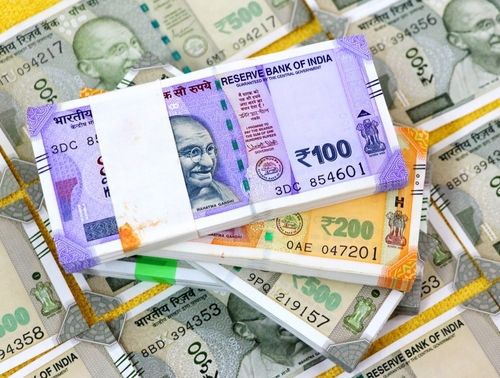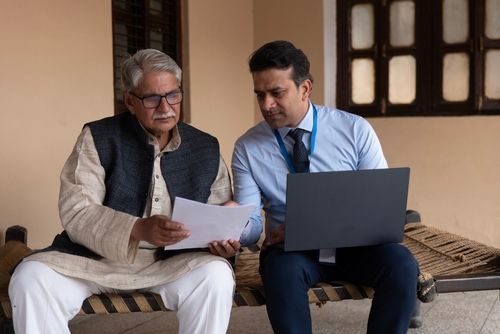How to Identify Fraudulent Practices in Term Insurance
Written by Upstox Desk
Published on July 15, 2025 | 6 min read

SUMMARY
Digitalization has benefited India but also increased insurance fraud, causing $6.25 billion in losses last year. Scammers target insurers with false claims and deceive policyholders with fake policies or by posing as IRDAI officials. As term insurance demand grows, it's crucial to distinguish genuine insurers from fraudsters. Awareness of these scams helps protect hard-earned money and ensures beneficiaries receive financial security without complications.
Understanding Term Insurance Fraud
Insurance frauds happen when individuals or entities deliberately deceive insurers or policyholders for financial gain. Hence, insurance fraud can be committed against an insurance company, a policyholder (or even someone not holding a policy). Besides the measurable financial losses, an insurance fraud can erode trust in the insurance system, thereby denting an entire industry.
Here are a few examples of insurance fraud in India:
Category of Fraud
| Category | Explanation |
|---|---|
| Application Fraud | Applicants provide false information while purchasing a policy. Common misrepresentations include hiding pre-existing medical conditions, overstating income, or falsifying identity details to secure a lower premium or higher coverage. |
| Fake Policy Fraud | Fraudsters posing as insurance agents sell non-existent policies, often using forged documents and fake company credentials. Victims pay premiums believing they are covered, only to realize later that the policy is not valid. |
| Claims Fraud | Individuals or their families file false claims by faking deaths, altering medical records, or using fraudulent nominees to receive payouts. Some even misuse duplicate identities to make multiple claims. |
Mainstream media covered many notable and recent instances of insurance fraud in India.
For instance, a Hindu priest in Pune was defrauded of approximately ₹6.63 lakh. An individual posing as a private insurance company employee contacted the priest, falsely claiming that his insurance policy had matured. Over several months, the fraudster extracted money under various pretexts, such as registration charges and taxes.
Common Warning Signals and Red Flags
Fraudsters and scammers often play it quite smartly, and it is difficult for laymen to identify them. However, you might use the following red flags to identify scammers:
-
Unsolicited Communication: You might have often heard this in TV commercials: “Insurance is a subject matter of solicitation.” This simply means that any insurance policy is to be demanded (by the policyholder) and not to be aggressively sold. If you have received unexpected calls, emails, or messages from unknown agents or companies offering insurance policies, it is a major warning signal as you did not ask for it. Scammers often use high-pressure tactics to lure unsuspecting individuals into buying fake policies from them by offering high returns and coverage amounts.
-
Pressurizing Techniques and Push Sales: Such agents do not give you enough time to research or do homework. Phrases like “limited period offer” or “immediate approval required” are commonly used to rush individuals into making payments. Any genuine agent will give you enough time to do your due diligence before buying an insurance product.
-
Lack of Proper Documentation: If an agent refuses to provide official documents, policy details, or a customer copy, it’s a red flag. Fake policies cannot be verified and do not carry stamps or other information about the company. It is always important to cross-verify products from the company’s website.
-
Requesting Premiums in Personal or Unauthorized Accounts: Scammers often ask you to deposit ‘premium’ in their personal or any other unauthorized account. Always check whether the amount is being deposited into an account belonging to a legitimate insurance company.
Steps to Safeguard Against Fraud
Before getting into the steps that can help you safeguard against potential insurance fraud, we advise you to beware of anyone who uses pressurizing techniques to sell insurance products. Anyone who tries to push sales using aggressive marketing techniques is not concerned about your financial security.
Besides this, here are a few steps you must take to safeguard against fraud:
-
Always verify the credentials of the insurance agent using the IRDAI website.
-
Always purchase insurance policies from reputed platforms such as Upstox and take account of the insurer’s reputation through online reviews, customer feedback, and IRDAI’s grievance records.
-
Always review policy documents and watch out for hidden charges, misleading clauses, or missing details in the policy document.
-
Always maintain records of all the transactions, including payment receipts, policy documents, emails, and SMS confirmations from the insurer.
-
Always provide the correct details and complete information about health conditions, income, and lifestyle habits. This helps in avoiding claim rejections at a later stage.
What to Do If You Suspect Fraud?
In case you suspect insurance fraud, immediately contact your insurance company (if you are a policyholder). You can also contact IRDAI on their Grievance Redressal Portal or call their toll-free number, 155255, for assistance. If you have been duped of any money, do contact the cybercrime branch of police in your area.
Summing up
Term insurance is an excellent tool for planning and ensuring your family’s financial future. With the introduction of the latest technologies, the overall reach of insurance products has increased massively, but that has also given scammers and fraudsters the chance to dupe insurers and policyholders. Such actions hamper the overall trust in the insurance sector, especially for the potential policyholders.
Insurance companies have specialized mechanisms, departments, and resources to fight fraudulent activities. Recognizing red flags, maintaining proper documentation, and taking immediate action in case of suspicion can help prevent financial losses. Staying informed about industry regulations and regularly reviewing policy terms can protect against fraud.
FAQs
What are common types of term insurance fraud in India?
Common frauds include application fraud (providing false information), fake policy fraud (selling non-existent policies), and claims fraud (filing false claims).
How can I verify the authenticity of an insurance agent?
Verify the agent's credentials through the Insurance Regulatory and Development Authority of India (IRDAI) website.
What are warning signs of a potential insurance scam?
Warning signs include unsolicited communications, pressure to make immediate decisions, lack of proper documentation, and requests for payments to personal accounts.
What steps should I take if I suspect insurance fraud?
Immediately contact your insurance company and report the issue to the IRDAI through their grievance redressal portal or helpline.
About Author
Upstox Desk
Upstox Desk
Team of expert writers dedicated to providing insightful and comprehensive coverage on stock markets, economic trends, commodities, business developments, and personal finance. With a passion for delivering valuable information, the team strives to keep readers informed about the latest trends and developments in the financial world.
Read more from UpstoxUpstox is a leading Indian financial services company that offers online trading and investment services in stocks, commodities, currencies, mutual funds, and more. Founded in 2009 and headquartered in Mumbai, Upstox is backed by prominent investors including Ratan Tata, Tiger Global, and Kalaari Capital. It operates under RKSV Securities and is registered with SEBI, NSE, BSE, and other regulatory bodies, ensuring secure and compliant trading experiences.

























